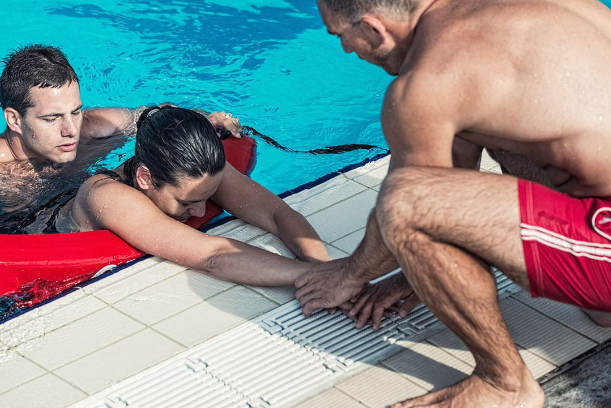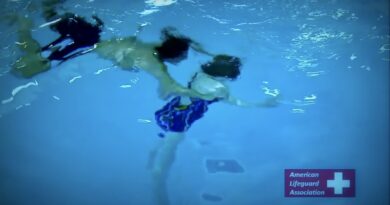Lifeguard Training: Building Confidence in Emergency Situations
Lifeguards play a crucial role in ensuring the safety of swimmers and beachgoers, but their effectiveness in emergencies relies heavily on their training and preparedness. Lifeguard training, provided by organizations like the American Lifeguard Association, focuses not only on imparting necessary skills but also on building confidence to handle high-pressure situations effectively.
Daftar Isi
The Importance of Confidence
Confidence is key for lifeguards when facing emergencies. It allows them to make quick decisions, take decisive actions, and communicate effectively with both victims and bystanders. Lifeguard training programs are designed to instill this confidence through comprehensive preparation.
Understanding Emergency Procedures
Lifeguard training begins with an in-depth understanding of emergency procedures. Lifeguards learn how to identify different types of emergencies, assess the situation quickly, and initiate appropriate responses. This knowledge forms the foundation for their confidence in handling crises.
Practical Skill Development
Hands-on practical training is a fundamental aspect of lifeguard courses. Candidates practice various rescue techniques, including swimming rescues, reaching assists, and using rescue equipment. Regular practice builds muscle memory and confidence in executing these skills when needed.
Simulation Exercises
Simulated emergency scenarios are an integral part of lifeguard training. These exercises replicate real-life situations, allowing candidates to apply their knowledge and skills under controlled conditions. By facing simulated emergencies, lifeguards develop the confidence to handle similar situations in actual environments.
Effective Communication Strategies
Confidence in communication is vital for lifeguards, as they often need to provide clear instructions and reassurance to distressed individuals. Lifeguard training includes communication skills development, teaching lifeguards how to remain calm and composed while conveying critical information.
Role-playing Scenarios
Role-playing scenarios enhance lifeguards’ confidence by simulating interactions with distressed swimmers, bystanders, and fellow lifeguards. These scenarios challenge lifeguards to make decisions under pressure and reinforce their ability to stay composed in challenging situations.
Stress Management Techniques
Emergency situations can be stressful, but lifeguard near me are trained to manage stress effectively. Lifeguard training programs incorporate stress management techniques such as breathing exercises and positive visualization to help lifeguards stay focused and confident during emergencies.
Continuous Evaluation and Feedback
Throughout lifeguard training, candidates receive continuous evaluation and feedback from instructors. Constructive feedback helps identify areas for improvement and builds confidence as candidates progress through the course.
Gradual Exposure to Real-life Situations
As lifeguard training progresses, candidates are gradually exposed to real-life situations under supervision. This gradual transition from simulated to actual emergencies allows lifeguards to apply their skills in authentic environments while still receiving guidance and support.
Certification and Beyond
Upon successful completion of lifeguard training, candidates earn certification from reputable organizations like the American Lifeguard Association. This certification not only validates their skills and knowledge but also serves as a testament to their confidence in handling emergency situations.
Conclusion
Lifeguard training goes beyond teaching technical skills; it’s about building confidence in individuals to respond effectively to emergencies. Through practical skill development, simulation exercises, effective communication strategies, and continuous evaluation, lifeguard training programs like those offered by the American Lifeguard Association empower lifeguards to face any situation with confidence and competence. By investing in comprehensive lifeguard training, we not only enhance the safety of aquatic environments but also ensure that lifeguards are equipped to handle emergencies with the confidence and professionalism they deserve.



